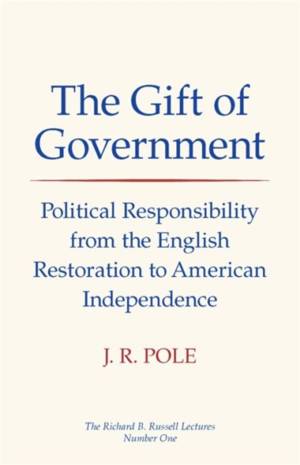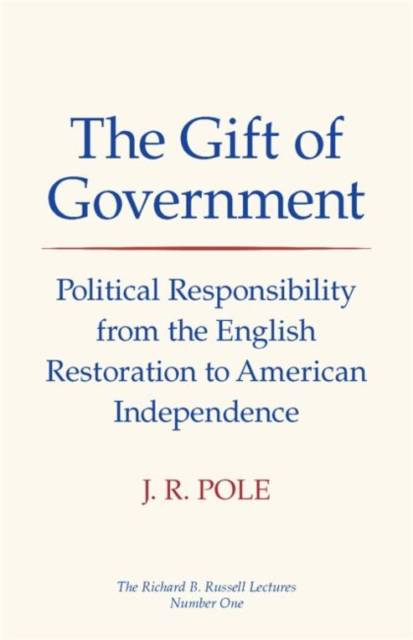
- Retrait gratuit dans votre magasin Club
- 7.000.000 titres dans notre catalogue
- Payer en toute sécurité
- Toujours un magasin près de chez vous
- Retrait gratuit dans votre magasin Club
- 7.000.0000 titres dans notre catalogue
- Payer en toute sécurité
- Toujours un magasin près de chez vous
The Gift of Government
Political Responsibility from the English Restoration to American Independence
J R PoleDescription
This book is a study in the history of political communication. Today we take it for granted that the people of a democracy have a right to know how their representatives speak and vote. But in the period of the American Revolution this development was new in both Britain and America. No assembly debates were reported in the colonial press; the constitutional convention of 1787 notoriously met in secret; even the U.S. senate kept its doors closed for its first decade. In Britain parliamentary debates were officially secret until reporting was increasingly but unofficially tolerated due to the pressure of public interest in the same period. Members of Parliament increasingly had their speeches printed for public consumption.In 1803 the Speaker set a gallery aside for the press reporters.
J. R. Pole shows that similar forces worked to bring about these profound changes in the concept of political accountability in both the new American republic and the republican aspects of the British mixed monarchy.Spécifications
Parties prenantes
- Auteur(s) :
- Editeur:
Contenu
- Nombre de pages :
- 200
- Langue:
- Anglais
- Collection :
Caractéristiques
- EAN:
- 9780820332741
- Date de parution :
- 01-08-08
- Format:
- Livre broché
- Format numérique:
- Trade paperback (VS)
- Dimensions :
- 140 mm x 216 mm
- Poids :
- 263 g

Les avis
Nous publions uniquement les avis qui respectent les conditions requises. Consultez nos conditions pour les avis.






